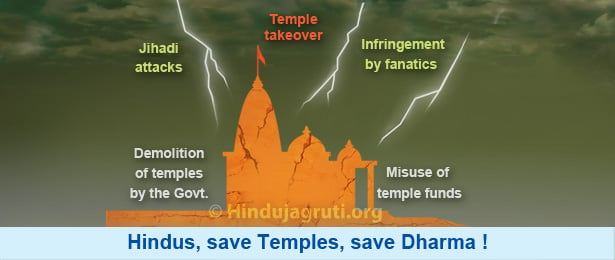
The Islamic body Jamiat-Ulema-e-Hind has filed a petition in the Supreme Court asking not to admit petitions filed by Hindu groups seeking to re-open cases related to reclaiming disputed religious sites at Kashi, Mathura and some other places, where Muslim religious places were built after demolishing ancient Hindu temples.
According to the reports, the Jamiat-Ulema-e-Hind has filed an impleadment plea in the Supreme Court not even to admit the petition filed by the Hindu group in the Kashi-Mathura temple land dispute cases. The Jamiat also said that they should be heard before they give notices to Hindu petitioners in the case.
On Friday, Hindu organisations had moved the apex court seeking re-opening of cases pertaining to Kashi and Mathura temple disputes.
The petition was filed to challenge the validity of the Places of Worship (Special Provisions) Act, 1991, which states that the character of religious places at the time of Independence cannot be changed. The petition is being seen as an attempt to re-open cases to reclaim disputed religious sites at Kashi, Mathura and some other places.
However, in response Jamiat-Ulema-e-Hind has also filed the petition demanding the Supreme Court not to entertain petitions of the Hindu side, as it claimed that such petitions not only threatened the secular fabric of the country but also will create fear in Muslim minds who are still recovering from the Ayodhya verdict.
Hindu organisation challenges Place of Worship Act in Supreme Court
A Hindu organisation, Vishwa Bhadra Pujari Purohit Mahasangh, has reportedly moved the Supreme Court of India challenging Section 4 of the Places of Worship (Special Provisions) Act, 1991 that calls for maintaining status quo of all places of worship, except the Ram Mandir at Ayodhya. They claim that the said law is a hindrance in the path of legally reclaiming disputed religious structures, such as Kashi and Mathura.
Section 4(1) of the Act states, “It is hereby declared that the religious character of a place of worship existing on the 15th day of August 1947 shall continue to be the same as it existed on that day.” As such, no mosque can be converted into a temple and vice-versa. The Public Interest Litigation (PIL) filed by the Hindu body has sought for declaring the contentious section of the Act as ultra vires and unconstitutional. The move may open the legal route to reclaim disputed religious sites other than the Ram Mandir.
“The impugned Act has barred the right and remedy against encroachment made on the religious property of Hindus exercising might of power by followers of another faith,” the petition said. The Hindu organisation argued that the said provisions of the Act prevented aggrieved parties from resolving their grievances through civil suits or invoking High Court’s jurisdiction under Article 226 of the Indian Constitution.
Prevents Judicial Remedy
The petition stated that the contentious Act prevented the restoration of the religious character of the Hindu religious structures that have been encroached upon by ‘followers of other Faith’, prior to August 15, 1947. The Hindu body argued that the Parliament had acted in an unconstitutional manner by making an ‘impugned provision’ and as such had ceased the resolution of disputes through court proceedings.
The petition argued that the Parliament had ‘transgressed’ its power of making laws by barring judicial remedy, a basic tenant of the Constitution. The Hindu body further stated that under Article 32 (Remedies for enforcement of rights) and Article 226 (Empowers the High Courts to issue directions), the Parliament cannot take the power of aggrieved citizens to approach appellate Courts and Courts of the first instance.
Cannot make laws with retrospective effect
Seeking restoration of all proceedings abated due to Section 4 of the Places of Worship Act, the Hindu body stated that devotees have their Right to Religion guaranteed under Article 25 of the Constitution. It reiterated that the Parliament cannot stop devotees from getting the custody of their religious sites through the Court of law. The Parliament cannot restrain Hindu devotees to get back their religious places of worship through the judicial process and cannot make any law which takes away or abridges the vested religious right of devotees and cannot make any law with retrospective effect,” it said.

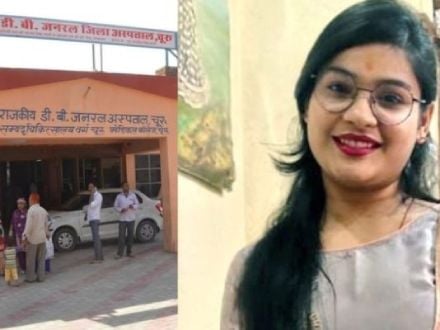 Rajasthan: Woman found hanging at a beauty parlour, Arshad, 3 others booked
Rajasthan: Woman found hanging at a beauty parlour, Arshad, 3 others booked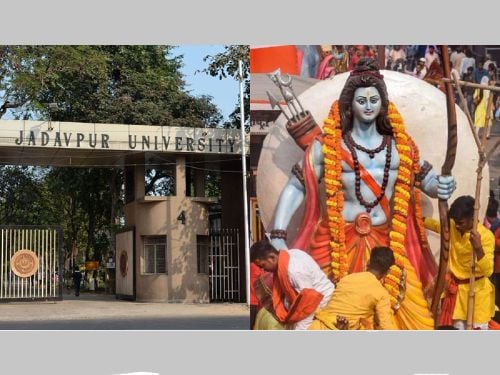 Jadavpur Univ revokes permission to celebrate Ram Navami on campus after granting it
Jadavpur Univ revokes permission to celebrate Ram Navami on campus after granting it Andhra Pradesh: Farooq kills mentally challenged Hindu man for insurance money
Andhra Pradesh: Farooq kills mentally challenged Hindu man for insurance money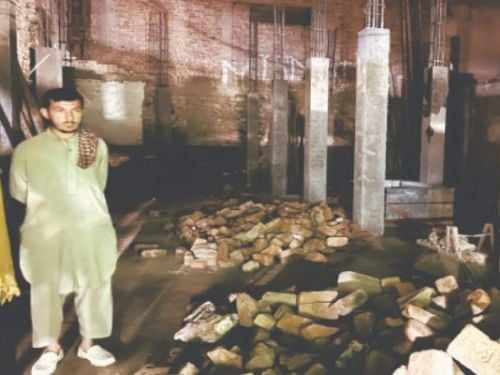 Pakistan: Ancient Hindu temple in Khyber Pakhtunkhwa demolished for commercial complex
Pakistan: Ancient Hindu temple in Khyber Pakhtunkhwa demolished for commercial complex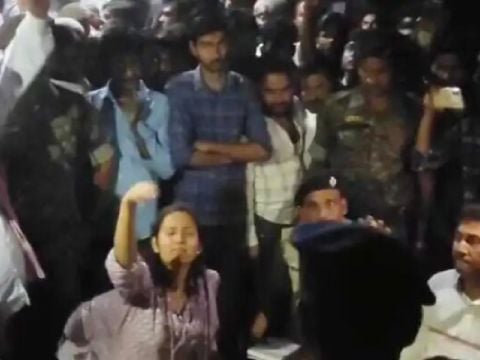 Bihar: Goddess Bhagavati Temple in Araria vandalised and deities damaged
Bihar: Goddess Bhagavati Temple in Araria vandalised and deities damaged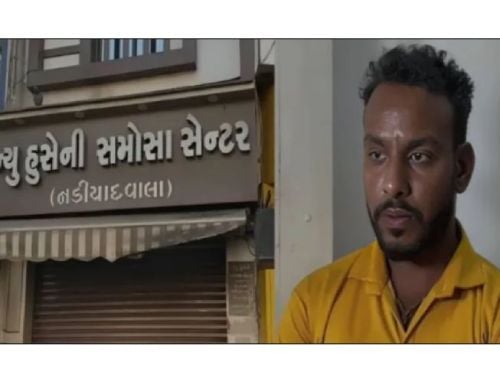 Vadodara: Beef supplier Imran Qureshi arrested in beef-stuffed samosa case
Vadodara: Beef supplier Imran Qureshi arrested in beef-stuffed samosa case